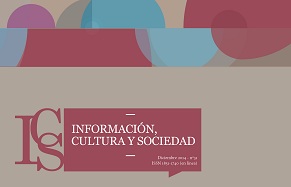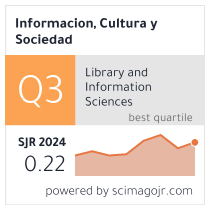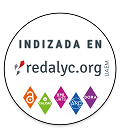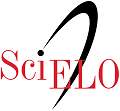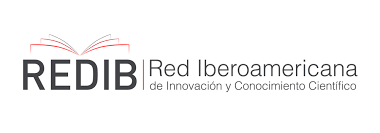Science and Technology Studies in Colombia: Research Groups and Collaboration
Abstract
Using bibliometric methods, this work identifies some of the main socio-cognitive characteristics of the academic community of Social Studies of Science and Technology (STS) in Colombia. The analysis, based on information reported in the ScienTI platform run by the Ministry of Science, Technology, and Innovation, focuses on 248 research articles published by the members of ten research groups identified as STS. Pajek, Ucinet and, Vosviewer analysis tools were used to analyze and visualize the collaborative relationships between the groups included in the study. The results suggest that, despite having similar lines of research, there is little collaboration among the STS research groups in Colombia. We identified higher rates of collaboration between STS group members with non-STS identified research academics than between STS group members. The co-authorship network is composed of STS academics and non-STS academics, where those serving as nodes connect with mostly non-STS-academics. When there is a collaboration among STS groups, those belong to the same city. These results offer preliminary elements for the description of this community, but also show the need to broaden the exploration to other types of production, as well as to try to identify groups and researchers who, even without explicitly identifying themselves as dedicated to STS, use the theoretical-methodological repertoires and make contributions to this field.Downloads
References
Adams, James D., Grant Black, J. Roger Clemmons y Paula E. Stephan. 2005. Scientific teams and institutional collaborations: Evidence from U.S. universities, 1981-1999. En Research Policy. Vol. 34, no. 3, 259-285. <https://doi.org/10.1016/j.respol.2005.01.014>
Borgatti, Stephen P., Martin G. Everett y Linton. C. Freeman. 2002. Ucinet for Windows: Software for Social Network Analysis. Harvard, MA: Analytic Technologies.
Bowden, Gary. 1995. Coming of age in STS: Some methodological musings. En Jasanoff, Sheila, Gerald. E. Markle, James C. Petersen y Trevor Pinch, eds. Handbook of science and technology studies. London: Sage. p. 64-79.
Cardona Héctor, Marta Palacio Sierra, Álvaro Monterroza-Ríos y Jorge Escobar – Ortiz. 2016. Fundamentación de la Línea de Investigación en Ciencia, Tecnología y Sociedad. Medellín: Instituto Tecnológico Metropolitano. Facultad de Artes y Humanidades. Grupo de Investigación CTS+i. p. 1-51.
Castaño Duque, Germán Albeiro, Gregorio Calderón Hernández y Rodrigo Posada Bernal. 2014. Perfiles y tipologías del investigador en administración en Colombia y su producción científica. En INNOVAR. Revista de Ciencias Administrativas y Sociales. Vol. 24, no. 52, 45-57. <https://www.redalyc.org/pdf/818/81830435005.pdf > [Consulta: 2 diciembre 2022].
Consejo Privado de Competitividad. Universidad del Rosario. 2020. Índice de competitividad de ciudades, 2019. Bogotá: Consejo Privado de Competitividad y Universidad del Rosario.
Dagnino, Renato y Hernán Thomas. 1999. La Política Científica y Tecnológica en América Latina: nuevos escenarios y el papel de la comunidad de investigación. En Revista Redes. Vol. 6, no. 13, 49 -74. <https://revistaredes.unq.edu.ar/index.php/redes/issue/view/18> [Consulta: 2 diciembre 2022].
Felt, Ulrike, Raybon Fouché, Clark A. Miller y Laurel Smith-Doerr. 2017. Introduction. En Felt, Ulrike, Raybon Fouché, Clark A. Miller y Laurel Smith-Doerr, eds. Handbook of Science and Technology Studies. Fourth Edition. Cambridge, MA: MIT Press. p. 1-26.
Godin, Benoît e Yves Gingras. 2000. Impact of collaborative research on academic science. En Science and Public Policy. Vol. 27, no. 1, 65-73.
Hagstrom, Warren O. 1965. The scientific community. New York: Basic Books.
Harvey, Janet, Andrew Pettigrew y Ewan Ferlie. 2002. The determinants of research group performance: Towards Mode 2? En Journal of Management Studies. Vol. 39, no. 6, 747-774. <http://doi.wiley.com/10.1111/1467-6486.00310>
Henriksen, Dorte. 2016. The rise in co-authorship in the social sciences (1980–2013). En Scientometrics. Vol. 107, no. 2, 455–476. <https://doi.org/10.1007/s11192-016-1849-x>
Hicks, Diana. 1999. The difficulty of achieving full coverage of international social science literature and the bibliometric consequences. En Scientometrics. Vol. 44, no. 2, 193-215. <https://doi.org/10.1007/BF02457380>
Hoffman, David M., Brigida Blasi, Bojana Ćulum, Žarko DragŠiĆ, Amy Ewen, Hugo Horta, Terhi Nokkala y Cecilia Ríos-Aguilar. 2014. The methodological illumination of a blind spot: Information and communication technology and international research team dynamics in a higher education research program. En Higher Education. Vol. 67, no. 4, 473-495. <https://doi.org/10.1007/s10734-013-9692-y>
Jaramillo Salazar, Hernán y Carolina Lopera Oquendo. 2008. Análisis de las comunidades científicas y académicas de las ciencias básicas médicas y de la salud pública en Colombia ¿Una diferencia? En Repositorio Institucional E-docUR. Universidad del Rosario. Facultad de Economía. Serie Documentos de Trabajo. No 48. <https://doi.org/10.48713/10336_3738>
Jasanoff, Sheila. 2010. A field of its own: the emergence of Science and Technology Studies. En Frodeman, Robert, Julie Thompson Klein y Carl Mitcham, eds. The Oxford Handbook of Interdisciplinarity. Oxford: Oxford University Press. p. 191-205.
Jiménez Becerra, Javier. 2010. Origen, desarrollo de los estudios de Ciencia, Tecnología y Sociedad y su perspectiva en América Latina. En Mancero, Mónica y Rafael Polo, comp. Ciencia, política y poder. Debates contemporáneos desde Ecuador. Quito: FLACSO. p. 103-132. <https://biblio.flacsoandes.edu.ec/libros/digital/42951.pdf> [Consulta: 2 diciembre 2022].
Kreimer, Pablo y Hernán Thomas. 2004. Un poco de reflexividad o ¿de dónde venimos? Estudios sociales de la Ciencia y la Tecnología en América Latina. En Kreimer, Pablo, Hernán Thomas, Patricia Rossinni y Alberto Lalouf, eds. Producción y uso social de conocimientos. Estudios de Sociología de la Ciencia y la Tecnología en América Latina. Bernal: Universidad Nacional de Quilmes. p. 11-90.
Kreimer, Pablo y Hebe Vessuri. 2017. Latin American science, technology, and society: a historical and reflexive approach. En Tapuya: Latin American Science, Technology and Society. Vol. 1, no. 1, 17-37. <https://doi.org/10.1080/25729861.2017.1368622>
Leydesdorff, Loet y Peter Van Den Besselaar. 1997. Scientometrics and communication theory: Towards theoretically informed indicators. En Scientometrics. Vol. 38, no. 1, 155-174. <https://doi.org/10.1007/BF02461129>
Martin, Ben R. 2012. The evolution of science policy and innovation studies. En Research Policy. Vol. 41, no. 7, 1219-1239. <https://doi.org/10.1016/j.respol.2012.03.012>
Martin, Ben R., Paul Nightingale y Alfredo Yegros-Yegros. 2012. Science and technology studies: Exploring the knowledge base. En Research Policy. Vol. 41, no. 7, 1182-1204. <http://dx.doi.org/10.1016/j.respol.2012.03.010>
Medina, Eden, Ivan da Costa Marques y Christina Holmes. 2014. Introduction: beyond imported magic. En Medina, Eden, Ivan da Costa Marques y Christina Holmes, eds. Beyond imported magic: essays on Science, Technology, and Society in Latin America. Cambridge, MA: MIT Press. p. 1-23.
Mercado, Alexis, Hebe Vessuri y Karenia Córdova. 2015. La política Científica y Tecnológica en Latinoamérica. Convergencias y divergencias frente a apremiantes problemas socioambientales. En Casas, Rosalba y Alexis Mercado. Mirada Iberoamericana a las Políticas de Ciencia, Tecnología e Innovación. Perspectivas comparadas. Buenos Aires: CLACSO. p. 297-337.
Milojević, Staša, Cassidy R. Sugimoto, Vincent Larivière, Mike Thelwall y Ying Ding. 2014. The role of handbooks in knowledge creation and diffusion: A case of Science and Technology studies. En Journal of Informetrics. Vol. 8, no. 3, 693-709. <https://doi.org/10.1016/j.joi.2014.06.003>
Mingers, John y Loet Leydesdorff. 2015. A review of theory and practice in scientometrics. En European Journal of Operational Research. Vol. 246, no. 1, 1-19 <http://dx.doi.org/10.1016/j.ejor.2015.04.002>
Morales B., Carolina, Sonia C. Concha y Juan C. Eslava. 2013. Las capacidades de investigación en determinantes sociales de la salud de grupos registrados en Colciencias, Colombia (2005-2012). En Revista Facultad Nacional de Salud Pública. Vol. 31, 126-138. <https://www.redalyc.org/pdf/120/12028727013.pdf> [Consulta: 2 diciembre 2022].
Olarte Sierra, María Fernanda. 2013. Introducción. Ciencia, tecnología y América Latina: perspectivas situadas. En Universitas Humanística. No. 76, 13-22. <http://www.scielo.org.co/scielo.php?script=sci_arttext&pid=S0120-48072013000200002> [Consulta: 2 diciembre 2022].
Ordóñez-Matamoros, Gonzalo, Susan E. Cozzens y Margarita García-Luque. 2009. International co-authorship and research team performance in Colombia. En 2009 Atlanta Conference on Science and Innovation Policy. Georgia: IEEE. p. 68-76.
Perianes-Rodríguez, Antonio, Carlos Olmeda-Gómez y Félix Moya-Anegón. 2010. Detecting, identifying and visualizing research groups in co-authorship networks. En Scientometrics. Vol. 82, no. 2, 307-319. <http://dx.doi.org/10.1007/s11192-009-0040-z>
Sismondo, Sergio. 2008. Science and Technology Studies and an Engaged Program. En Hackett, Edward J., Olga Amsterdamska, Michael Lynch y Judy Wajcman, eds. The Handbook of Science and Technology Studies. Cambridge, Massachusetts; London, England: The MIT Press. p. 13-32.
Teasley, Stephanie y Steven Wolinsky. 2001. Scientific collaborations at a distance. En Science. Vol. 292, no. 5525, 2254-2255 <https://doi.org/10.1126/science.1061619>
Thomas, Hernán. 2010. Los estudios sociales de la tecnología en América Latina. En Íconos. Revista de Ciencias Sociales. No. 37, 35-53. <https://doi.org/10.17141/iconos.37.2010.417>
Vaccarezza, Leonardo S. 2011. Ciencia, tecnología y sociedad: el estado de la cuestión en América Latina. En Ciência & Tecnologia Social. Vol. 1, no. 1. <https://periodicos.unb.br/index.php/cts/article/view/7801/6420> [Consulta: 2 diciembre 2022].
Van Den Besselaar, Peter. 2001. The cognitive and the social structure of STS. En Scientometrics. Vol. 51, no. 2, 441-460. <http://dx.doi.org/10.1023/A:1012714020453>
Van Eck, Nees Jan y Ludo Waltman. 2010. Software survey: VOSviewer, a computer program for bibliometric mapping. En Scientometrics. Vol. 84, no. 2, 523–538 <https://doi.org/10.1007/s11192-009-0146-3>
Vélez-Cuartas, Gabriel, Diana Lucio-Arias y Loet Leydesdorff. 2016. Regional and global science: publications from Latin America and the Caribbean in the SciELO Citation Index and the Web of Science. En El profesional de la información. Vol. 25, no. 1, 35-46. <https://doi.org/10.3145/epi.2016.ene.05>
Wilsdon, James, Liz Allen, Eleonora Belfiore, Philip Campbell, Stephen Curry, Steven Hill, Richard Jones, Roger Kain, Simon Kerridge, Mike Thelwall, Jane Tinkler, Ian Viney, Paul Wouters, Jude Hill y Ben Johnson. 2015. The Metric Tide: Report of the Independent Review of the Role of Metrics in Research Assessment and Management. Bristol: Higher Education Funding Council for England.
Wuchty, Stefan, Benjamin F. Jones y Brian Uzzi. 2007. The increasing dominance of teams in production of knowledge. En Science. Vol. 316, no. 5827, 1036-1039. <https://doi.org/10.1126/science.1136099>
Wyatt, Sally, Staša Milojević, Han Woo Park y Loet Leydesdorff. 2017. The intellectual and practical contributions of Scientometrics to STS. En Felt, Ulrike, Raybon Fouché, Clark A. Miller y Laurel Smith-Doerr, eds. Handbook of Science and Technology Studies. Cambridge, Massachusetts; London, England: MIT Press. p. 87-112.
Authors publishing in this journal acknowledge the conditions below:
- Authors retain the copyright of their work while they transfer the right of the first publishing to the journal, under the Creative Commons Attribution-ShareAlike 4.0 International (CC BY-SA 4.0) Licence, which allows third parties to reproduce them under the condition that express mention is given to the author and to its original publication in the journal.
- Authors may enter into other contractual and independent arrangements for the non-exclusive distribution of the version of the article published in this journal (for instance, it can be published in an institutional repository or in a book). In any case, an express mention should be given to its first publication in the journal.
- It is permitted and encouraged to publish online the articles (for example, on institutional or personal pages).
